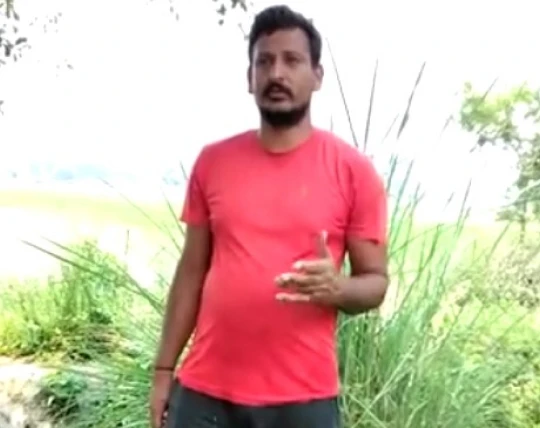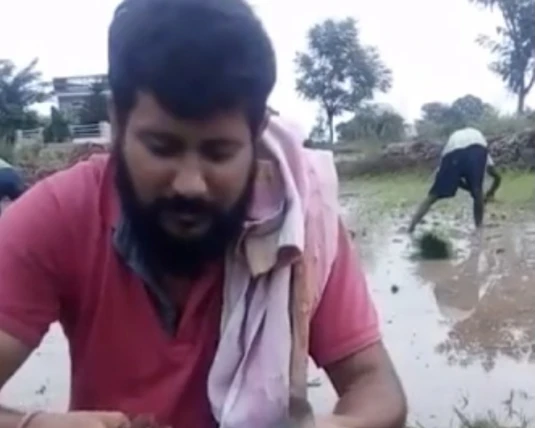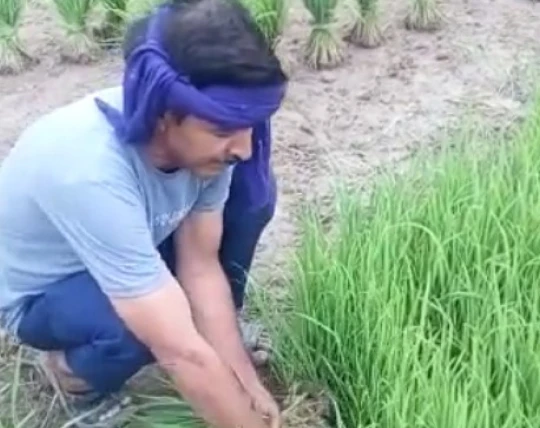Malwa farmers cultivate a wide variety of organic and sustainably grown crops, such as Soyabean, Lentil, Wheat, Chickpea and more, which are then fine-graded and quality-tested before being distributed.

NBF’s Project Malwa is a sustainable agriculture initiative located in the vibrant region of Malwa, Madhya Pradesh. With a focus on organic farming practices, the project aims to empower local farmers by providing them with training, resources, and market access. By promoting eco-friendly techniques and creating a robust supply chain for organic produce, Project Malwa contributes to the economic development of the region while prioritizing environmental conservation.
Through its holistic approach, NBF not only enhances agricultural productivity but also addresses social development challenges. The project’s impact extends beyond farming practices, encompassing initiatives in education, healthcare, and women empowerment. By leveraging the natural advantages of the Malwa region, Project Malwa exemplifies NBF’s commitment to sustainable agriculture, community empowerment, and a healthier future for both people and the planet.
NBF’s Project Malwa
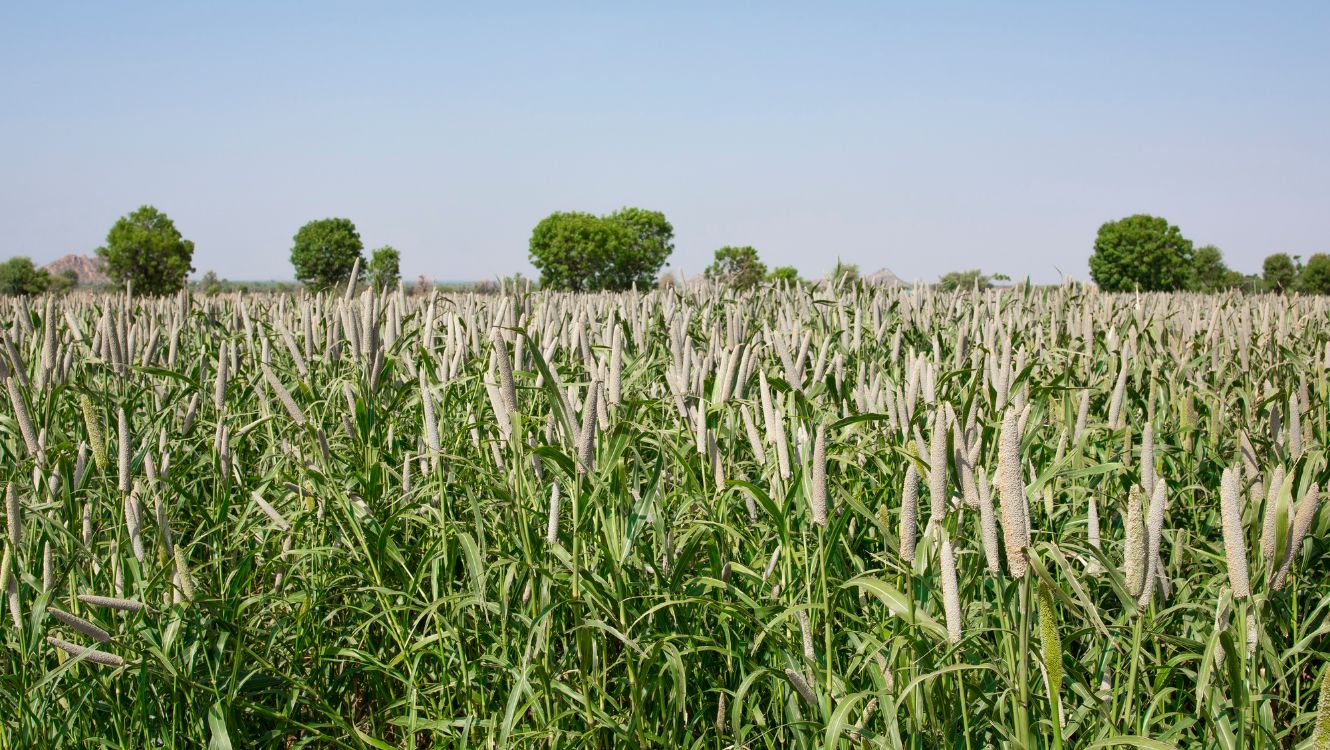

Location of the Project
The NBF’s Malwa project lies in the west-central India occupying a plateau of volcanic origin located in the state of Madhya Pradesh, India. Geologically, the Malwa Plateau generally refers to the volcanic upland north of the Vindhya Range. Overall, agriculture is the main occupation of the people of Malwa. The region has been one of the important producers of opium in the world.
Coordinates – Malwa project is located at 22.273614N and 76.030021E

Organic Certification

Nature Bio Foods’ Malwa project is KRAV organic certified, which ensures that the production methods used meet the stringent requirements set forth by KRAV. This certification is a testament to NBF’s commitment to organic farming practices and sustainable agriculture. With the KRAV certification, NBF’s Malwa project can assure its customers that its products are of the highest quality and are produced in an environmentally responsible manner.

In addition to being KRAV organic certified, NBF’s Malwa project is also USDA certified organic. Nature Bio Foods (NBF) implements USDA standards of organic farming by following strict guidelines for organic farming practices, such as avoiding the use of synthetic fertilizers and pesticides, using renewable resources, and promoting biodiversity. NBF’s certification is granted by various organic certification bodies such as Control Union Certifications, OneCert, and others. The certification verifies that the products are grown and processed in accordance with the organic standards set forth by the USDA. NBF’s commitment to organic farming practices not only ensures the production of healthier and safer food but also promotes environmental sustainability.
Everything you need to know about Malwa
Malwa is a historical region located in the central part of India, which includes parts of Madhya Pradesh, Rajasthan, and Gujarat. It has a rich cultural heritage and is famous for its scenic beauty, historical monuments, and religious sites. In recent years, Malwa has gained recognition for its organic farming practices, which are becoming increasingly popular among farmers in the region.
Apart from agriculture, Malwa is also known for its historical landmarks such as the ancient city of Ujjain, which is a centre of Hindu pilgrimage, and the magnificent Maheshwar Fort, which is a popular tourist attraction. The region is also known for horticulture, animal husbandry, and forestry. The horticulture industry in Malwa produces fruits like guava, banana, and mango, and vegetables such as tomato, cauliflower, and peas. The animal husbandry sector in the region includes dairy farming and poultry farming. Malwa is also famous for its handloom industry, producing exquisite fabrics such as Maheshwari and Chanderi sarees.
Agricultural Characteristics
Soil Profile

The region of Malwa has diverse types of soil, which play a crucial role in the agricultural production of the region. The major types of soil found in Malwa are:
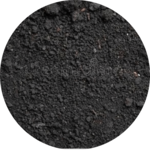
Black Soil
Also known as regur or black cotton soil, it is found in the western and central parts of Malwa. It is rich in organic matter and has good water-retaining capacity, making it ideal for growing cotton, soybean, and other crops.

Red Soil
This type of soil is found in the eastern parts of Malwa and is rich in iron and aluminum oxides. It is well-drained and suitable for growing crops such as wheat, gram, and mustard.
Climate Condition
The climate of NBF Project Malwa is semi-arid, with hot summers and cool winters. The average temperature in summer is around 40 degrees Celsius, and the average temperature in winter is around 10 degrees Celsius. The monsoon season lasts from June to September, and receives an average rainfall of around 800 mm.The climate of Malwa is influenced by its location in the rain shadow of the Vindhya Mountains. The Vindhya Mountains block the moisture-laden winds from the Arabian Sea, which results in a drier climate in Malwa. The region is also prone to droughts, which can have a devastating impact on agriculture. Despite the challenges posed by the climate, Malwa is a fertile region with a rich history and culture.
The climatic conditions of Malwa are favorable for a diverse range of agricultural activities, including the cultivation of crops like soybean, wheat, cotton, and vegetables. The region’s favorable climate, combined with its fertile soil, makes it an ideal location for agriculture. However, erratic rainfall and occasional droughts can affect agricultural production, leading to crop failures and economic losses for farmers.
Temp.
Minimum

10 °C
(Dec-Jan)
Maximum

45 °C
(May-June)
Humidity
Relative Humidity

35% - 83%
Rainfall
Average Rainfall

800 mm
Seasons
There are mainly three seasons.

Summer
(Mar-June)

Rainy
(July-Sep)

Winter
(Oct-Feb)
Farm Water Availability
The availability of water for farming in the Malwa region is dependent on the monsoon season, which brings the majority of the region’s rainfall. The region has an extensive canal network that helps in the distribution of water for irrigation purposes. The major canals that provide irrigation water to the Malwa region are the Indira Gandhi Canal, the Narmada Canal, and the Rajasthan Canal. Apart from canals, farmers in Malwa also use groundwater for irrigation. The region has a significant number of tubewells and wells that farmers use to extract groundwater for irrigation purposes. However, over-extraction of groundwater can lead to depletion of the water table, which can have long-term implications for agriculture in the region.
In recent years, the government has taken steps to promote sustainable use of water resources for agriculture in the Malwa region. These include promoting water harvesting techniques, encouraging farmers to use drip irrigation, and regulating the use of groundwater. The government has also implemented policies to promote the efficient use of water in agriculture to ensure long-term sustainability of the region’s water resources.
Nature of Farmers
Farmers in the Malwa region are known for their hardworking and resilient nature. Agriculture is the primary occupation for a significant percentage of the population, and farmers in the region have a strong connection to their land and farming traditions. In recent years, there has been a growing interest among farmers in the Malwa region to adopt organic farming practices. This is driven by the increasing demand for organic products in domestic and international markets. To produce organic crops, many farmers have adopted organic farming practices, including organic manure and natural pest control methods.
Despite the challenges posed by climate change, erratic rainfall, and market fluctuations, farmers in Malwa continue to work hard to ensure the region’s agricultural productivity and economic growth. Their determination and resilience make them an integral part of the region’s cultural and social fabric.

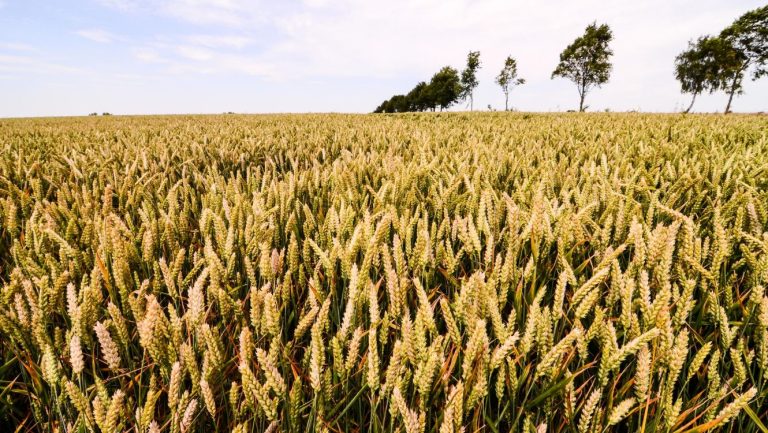

Growing Conditions
The Malwa region has a favorable climate and fertile soil, which make it suitable for the cultivation of a diverse range of crops. Some of the major crops grown in the region include soybean, wheat, cotton, maize, and vegetables.
The growing conditions for crops in Malwa depend on various factors, such as the type of soil, the availability of water, and the climate. The region has a predominantly clayey soil, which is rich in organic matter and nutrients. This soil type is ideal for the cultivation of crops like soybean, wheat, and cotton. The Malwa region receives most of its rainfall during the monsoon season, which is crucial for agricultural production. However, farmers in the region also rely on irrigation to supplement water availability during dry spells. Farmers in Malwa practice crop rotation to maintain soil fertility and reduce the incidence of pests and diseases. For instance, they rotate soybean with wheat or maize to replenish soil nutrients and prevent the buildup of pests and diseases that can affect soybean growth.
Crop Details
Kharif
-
-
- Soybean
-
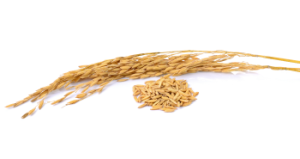
Rabi (Nov-March)
- Lentil
- Wheat
- Chickpea
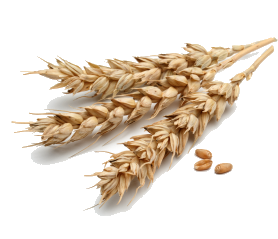
Statistics
NBF Supply Chain

NBF Supply Chain
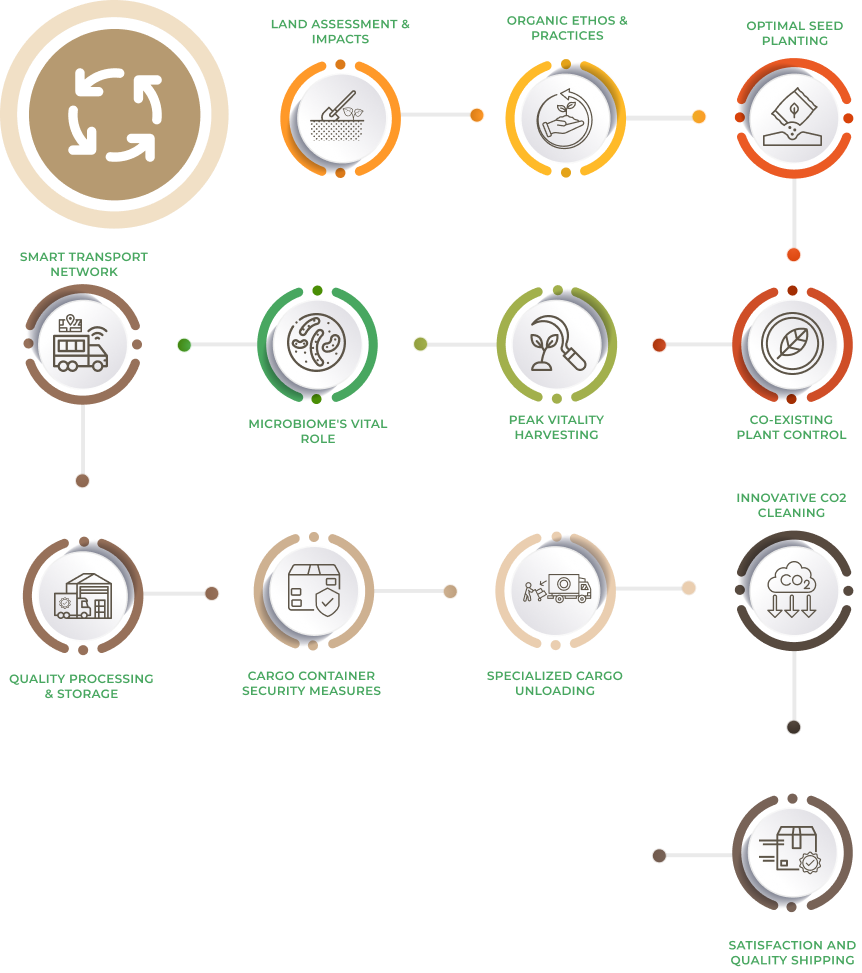
How to Reach Malwa, Madhya Pradesh?
The Malwa region is located in the western part of Madhya Pradesh and is well-connected to other parts of the state and country through various modes of transportation. The region’s natural beauty, rich cultural heritage, and warm hospitality make it a popular destination for tourists and travelers seeking to explore the beauty and charm of Madhya Pradesh.

By Train
The Malwa region has several railway stations, including Ujjain, Ratlam, and Indore, which are well-connected to major cities in India. You can take a train from Delhi, Mumbai, Kolkata, or any other major city to reach these railway stations. From there, you can hire a taxi or take a bus to reach your destination in Malwa.

By Road
The Malwa region is well-connected to other parts of Madhya Pradesh and neighboring states through a network of state and national highways. You can take a bus or hire a taxi from Indore, Ujjain, or Ratlam to reach your destination in Malwa.

By Air
The nearest airport to the Malwa region is the Devi Ahilya Bai Holkar Airport in Indore, which is located about 80 km from the region. The airport is well-connected to major cities in India like Delhi, Mumbai, and Kolkata. From the airport, you can hire a taxi or take a bus to reach your destination in Malwa.

Places to Visit in Malwa, Madhya Pradesh
Mahakaleshwar Temple, Ujjain
The Mahakaleshwar Temple is one of the most popular religious sites in India, located in the ancient city of Ujjain. The temple is dedicated to Lord Shiva and is one of the twelve Jyotirlingas, which are believed to be the most sacred abodes of Lord Shiva. The temple’s unique feature is the lingam, which is considered to be self-manifested or Swayambhu. The temple’s architecture is a blend of Rajput and Maratha styles and is worth admiring. The temple is located on the banks of the holy river Kshipra and is a must-visit destination in Malwa.
[/mvc_ihe]Mandu
Mandu is an ancient city located in the Dhar district of Malwa, Madhya Pradesh. The city is renowned for its magnificent architecture, which dates back to the 15th and 16th centuries. Some of the famous attractions in Mandu include Jahaz Mahal, Hindola Mahal, Hoshang Shah’s Tomb, and the Mandu Fort. The city’s historical and cultural significance makes it a must-visit destination for history buffs and architecture enthusiasts.
[/mvc_ihe]

Elevation
It has an average elevation of roughly 500 meters.


River
The western part of the region is drained by the Mahi River, the middle section by the Chambal River, and the eastern part by the Betwa River and the headwaters of the Dhasan and Ken rivers.


Soil
In this region the main classes of soil are black and brown and soil. The volcanic, clay-like soil of the region owes its black and brown colour to the high iron content of the basalt from which it formed.
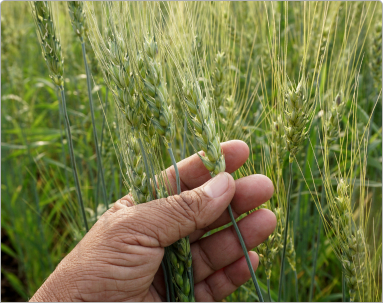

Crop
This zone is highly suitable for producing flaxseed, Lentils, Wheat, and Chickpea.
Sustainability Efforts
Economic
| Women's Empowerment through Entrepreneurial Training Programs |
243 |
|
| Empowering Young Women: Career Counseling for Future Success |
345 |
|
| Craftsmanship Unleashed: Skill Development in Artisanal Handicrafts |
354 |
|
Social
| Nourishing the Future: Workshop on Child Nutrition and Well-being |
850 |
|
| Guiding the Leaders of Tomorrow: Mentoring Programs for Students |
1300 |
|
Environmental
| Cultivating the Earth: Advanced Training in Soil Regeneration |
456 |
|
| Towards a Plastic-Free Future: Comprehensive Reduce and Reuse Initiatives |
124 |
|
| Preserving Our Lifeline: Campaigns for Water Conservation and Stewardship |
977 |
|
| Agriculture in Harmony with Nature: Organic Farming workshops |
653 |
|
| Clean Village, Healthy Village: Promoting Cleanliness and Sanitation at the Grassroots Level |
986 |
|
Our Impact

Our Farmer’s Impact
The impact of our farmers is significant in enhancing soil fertility through various methods such as crop rotation, cover cropping, reduced tillage, and application of compost. These practices reduce fuel-intensive tillage, resulting in carbon sequestration, decreasing greenhouse gases, and reversing climate change. In addition, they can improve soil structure and reduce the possibility of soil erosion.

The difference our People are Making
The difference our organization is making is by converting land from conventional management to organic management, managing the entire surrounding system for biodiversity and sustainability, and using alternative sources of nutrients such as crop rotation, residue management, and organic manures. We provide complete biological inputs to our crops, and our teams supervise and manage weed and pest control through better management practices, physical and cultural means.

Contribution by our Customers
Our customers’ contribution is vital in promoting food safety and environmental issues. The concern for their health, the environment, and worldwide crises has increased exponentially. Organic agriculture has become the only option for many consumers. Simply by consuming organic produce, they are contributing to the overall health of the planet and making an impact towards sustainability.




